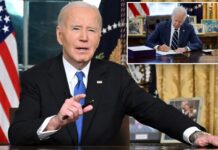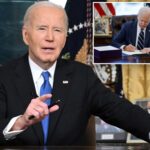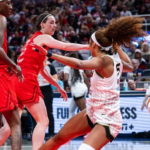
A bombshell trial has rocked the city of Colorado Springs and stirred fresh controversy across the country after a prominent black media personality was convicted for orchestrating a hate crime hoax—one that may have been staged with the knowledge and participation of the city’s mayor, Yemi Mobolade.
The hoax, which involved a burning cross and racial slurs targeting Mobolade, helped build a wave of sympathy that arguably boosted his chances in a tight 2023 runoff election. Now, newly revealed testimony from the FBI, the convicted ringleader Derrick Bernard, and other courtroom evidence suggest that Mobolade may have been complicit in the very crime that initially seemed to mark him as a victim.
Shortly after an April 12, 2023 election triggered a runoff between Mobolade and Republican Wayne Williams, a chilling image circulated: a campaign sign defaced with the n-word, next to a burning cross. It was an instantly explosive visual in a city long considered a GOP stronghold. The backlash was swift, sympathetic coverage followed, and Mobolade went on to win the May runoff.
But according to federal prosecutors, it was all carefully choreographed political theater—or worse, a felony dressed in flames.
In court, FBI agent Ethan Doherty testified that Mayor Mobolade misled federal investigators. Despite phone records showing calls between Bernard and Mobolade before, during, and after the incident, the mayor told the FBI he was “120% sure” he hadn’t spoken to Bernard three days later. Doherty said Mobolade appeared “nervous,” and began using a new phone the day after the staged hate crime.
“He falsely denied contact with Bernard,” Doherty told the court, aligning with earlier reporting from The Daily Wire—reporting that Mobolade publicly denied at the time.
The most damning testimony came from Derrick Bernard, who is serving life in prison for an unrelated killing. Bernard testified under oath that Mobolade was directly involved in planning the hoax, and that the mayor promised to reward him by steering city funds toward Bernard’s media company.
Text messages entered into evidence showed Bernard assuring Mobolade of the plot’s success:
“The klan cannot be allowed to run this city again… I guarantee the finish.”
A five-minute phone call between the two took place just days before the runoff. Mobolade has never explained what the call was about and initially denied it happened.
In a legal twist, federal prosecutors argued the cross burning was a “threat,” not a hoax, charging the trio with making a false threat to intimidate. That required portraying Mobolade as an unwitting victim. Yet mounting evidence indicates he was not only aware but an active participant.
When Bernard later expressed fears about backlash, he said Mobolade promised to “squash” the story. Sure enough, his campaign discouraged media coverage at the time, and internal emails revealed the mayor’s team worked to discredit news outlets that reported on the inconsistencies.
Adding to the scandal is a revelation from an FBI official that the Department of Justice declined to indict Mobolade for lying to federal agents—not because he was innocent, but because “we can’t indict the first black mayor of Colorado Springs.”
The Justice Department also falsely stated in a press release that Bernard’s incriminating message had been sent to his co-defendants, when in fact it was sent to Mobolade himself.
Mobolade, who cried on the witness stand, issued a polished statement after the convictions, framing the moment as a victory over hate and a step toward healing.
But critics, including City Councilman Dave Donelson, weren’t buying it.
“If I were the mayor, I’d want to clear this up,” Donelson said, calling for a full investigation into the mayor’s actions and accusing the DOJ of political bias. “The citizens of Colorado Springs deserve answers.”
At a city council meeting, Donelson didn’t mince words:
“I call for an investigation into these accusations and actions.”








